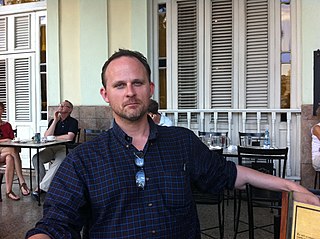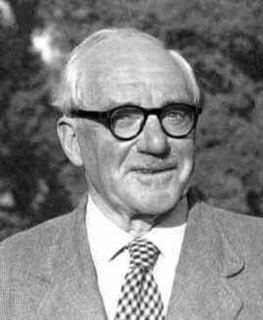A Quote by Victor Hugo
The book which the reader now holds in his hands, from one end to the other, as a whole and in its details, whatever gaps, exceptions, or weaknesses it may contain, treats of the advance from evil to good, from injustice to justice, from falsity to truth, from darkness to daylight, from blind appetite to conscience, from decay to life, from bestiality to duty, from Hell to Heaven, from limbo to God. Matter itself is the starting-point, and the point of arrival is the soul. Hydra at the beginning, an angel at the end.
Quote Topics
Advance
Angel
Appetite
Arrival
Beginning
Blind
Book
Conscience
Contain
Darkness
Daylight
Decay
Details
Duty
End
Evil
Exceptions
Falsity
Gaps
God
Good
Hands
Heaven
Hell
His
Holds
Hydra
Injustice
Itself
Justice
Life
Limbo
Matter
May
Now
Other
Point
Reader
Soul
Starting
Treats
Truth
Weaknesses
Whatever
Which
Whole
Related Quotes
If the point of life is the same as the point of a story, the point of life is character transformation. If I got any comfort as I set out on my first story, it was that in nearly every story, the protagonist is transformed. He's a jerk at the beginning and nice at the end, or a coward at the beginning and brave at the end. If the character doesn't change, the story hasn't happened yet. And if story is derived from real life, if story is just condensed version of life then life itself may be designed to change us so that we evolve from one kind of person to another.
We thought of life by analogy with a journey, a pilgrimage, which had a serious purpose at the end, and the thing was to get to that end, success or whatever it is, maybe heaven after you’re dead. But we missed the point the whole way along. It was a musical thing and you were supposed to sing or to dance while the music was being played.
Man doeth this and doeth that from the good or evil of his heart; but he knows not to what end his sense doth prompt him; for when he strikes he is blind to where the blow shall fall, nor can he count the airy threads that weave the web of circumstance. Good and evil, love and hate, night and day, sweet and bitter, man and woman, heaven above and the earth beneath--all those things are needful, one to the other, and who knows the end of each?
It is evil to justify killing (unborn babies) by the happy outcome of eternity for the one killed. This same justification could be used to justify killing one-year olds, or any heaven-bound believer for that matter. The Bible asks the question: "Shall we sin that grace may abound?" (Romans 6:1) And: "Shall we do evil that good may come?" (Romans 3:8). In both cases the answer is a resounding NO. It is presumption to step into God's place and try to make the assignments to heaven or to hell. Our duty is to obey God, not to play God.
We can think of Lent as a time to eradicate evil or cultivate virtue, a time to pull up weeds or to plant good seeds. Which is better is clear, for the Christian ideal is always positive rather than negative. A person is great not by the ferocity of his hatred of evil, but by the intensity of his love for God. Asceticism and mortification are not the ends of a Christian life; they are only the means. The end is charity. Penance merely makes an opening in our ego in which the Light of God can pour. As we deflate ourselves, God fills us. And it is God’s arrival that is the important event.
In his (Christ's) surrender on the cross all the pain and agony of mankind was concentrated at a single point, and passed through from death to immortality, There is no pain of any creature from the beginning to the end of time which was not 'known' at this point and thus transmuted. To know all things in the Word is thus to know all the suffering of the world transfigured by the resurrection, somehow reconciled and atoned in eternal life. It was God's purpose which he set forth in Christ as a plan for the fullness of time, to unite all things in him, things on heaven and things on earth'.
Beneath the gore and smoke and loam, this book is about the evanescence of life, and why some men choose to fill their brief allotment of time engaging the impossible, others in the manufacture of sorrow. In the end it is a story of the ineluctable conflict between good and evil, daylight and darkness, the White City and the Black.
The river itself has no beginning or end. In its beginning, it is not yet the river; in the end it is no longer the river. What we call the headwaters is only a selection from among the innumerable sources which flow together to compose it. At what point in its course does the Mississippi become what the Mississippi means?
Sometimes it’s a sort of indulgence to think the worst of ourselves. We say, ‘Now I have reached the bottom of the pit, now I can fall no further,’ and it is almost a pleasure to wallow in the darkness. The trouble is, it’s not true. There is no end to the evil in ourselves, just as there is no end to the good. It’s a matter of choice. We struggle to climb, or we struggle to fall. The thing is to discover which way we’re going.
There is no ideal length, but you develop a little interior gauge that tells you whether or not you're supporting the house or detracting from it. When a piece gets too long, the tension goes out of it. That word?tension?has an animal insistence for me. A piece of writing rises and falls with tension. The writer holds one end of the rope and the reader holds the other end?is the rope slack, or is it tight? Does it matter to the reader what the next sentence is going to be?
In presenting a mathematical argument the great thing is to give the educated reader the chance to catch on at once to the momentary point and take details for granted: two trivialities omitted can add up to an impasse). The unpractised writer, even after the dawn of a conscience, gives him no such chance; before he can spot the point he has to tease his way through a maze of symbols of which not the tiniest suffix can be skipped.






































